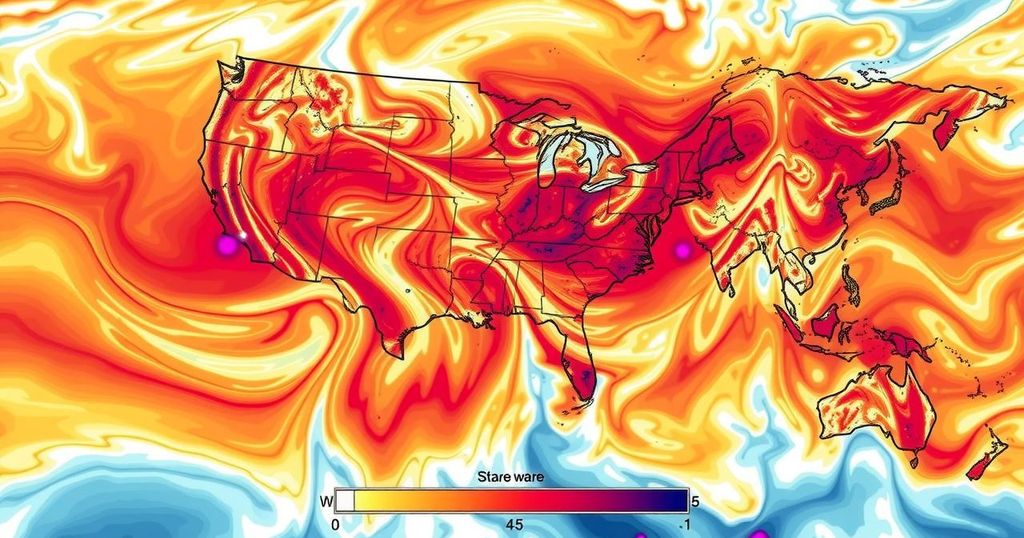Scientists Warn of 41 Additional Days of Dangerous Heat in 2024

A report by WWA and Climate Central reveals that climate change has led to 41 more days of dangerous heat worldwide in 2024, resulting in over 3,700 deaths and millions displaced. The analysis emphasizes the urgent need for a transition to renewable energy and improved preparedness for extreme weather events, especially in vulnerable regions like Africa.
A recent report from World Weather Attribution (WWA) and Climate Central highlights that human-induced climate change has contributed to an increase of 41 additional days of hazardous heat globally in 2024. This study, entitled “When Risks Become Reality: Extreme Weather in 2024,” describes how extreme weather phenomena have resulted in over 3,700 fatalities and the displacement of millions. The data underscores an urgent need for nations to transition to renewable energy sources and enhance their preparedness for future extreme weather events.
The report indicates that climate change has exacerbated 26 out of the 29 extreme weather events analyzed, including catastrophic floods, severe droughts, and hurricanes. For instance, flooding in Africa claimed more than 2,000 lives, while Hurricane Helene was intensified due to elevated sea temperatures caused by global warming, resulting in 230 fatalities. Additionally, the Amazon rainforest faces severe drought, which threatens its capacity to function as a carbon sink, indicating the far-reaching consequences of climate change.
Furthermore, the report calls for enhanced measures to protect vulnerable populations, particularly in Africa, which suffers disproportionately from climate impacts despite contributing minimal emissions. Suggestions include accelerating the shift to renewable energy, improving early-warning systems for extreme weather, and providing international financial backing for developing countries to adapt to changing climate conditions. Current climate models predict that the alarming rise in hazardous heat days will persist unless immediate and robust actions are taken to mitigate fossil fuel emissions, worsening public health threats globally.
With 2024 on track to be recorded as the hottest year ever, the report highlights the need for collective global efforts to address and combat the escalating climate crisis effectively. The emphasis on immediate action reflects a critical moment for decision-makers to implement strategic frameworks that prioritize environmental sustainability and public health.
Human-induced climate change is increasingly recognized for its significant influence on weather patterns and associated health risks. This degradation has manifested through extreme temperatures, flooding, and other weather-related disasters, prompting urgent discourse on transitioning from fossil fuels to sustainable energy solutions. The importance of taking decisive action to mitigate climate change has never been more pronounced, especially as data shows a marked increase in hazardous heat days and extreme weather events over the past years, severely impacting global health and security.
In conclusion, the findings from the analysis reveal the alarming reality of climate change’s immediate impact on global weather patterns, resulting in increased days of dangerous heat and significant loss of life and displacement. Urgent actions are necessary to transition to renewable energy, establish effective warning systems, and ensure that the most affected communities receive adequate support. The report serves as a clarion call for global cooperation and innovation to combat the climate crisis and safeguard public health for the future.
Original Source: www.dynamitenews.com






